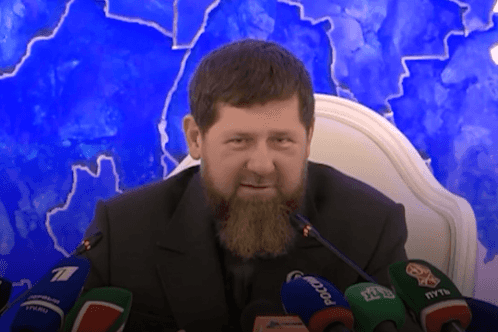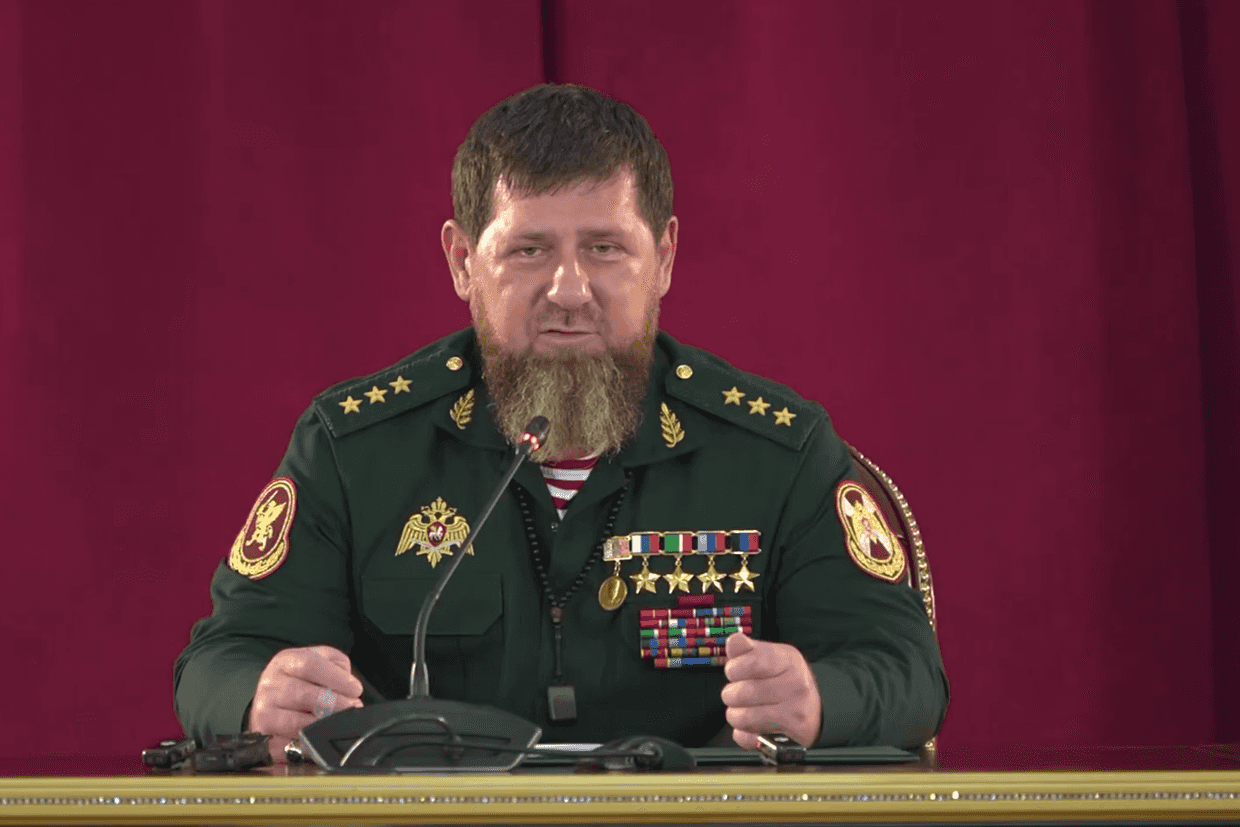
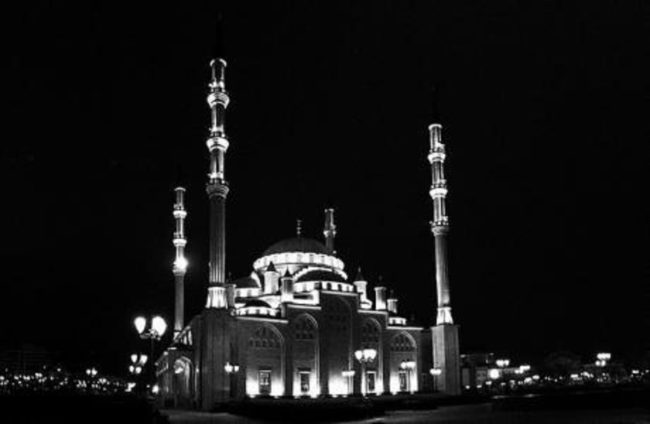
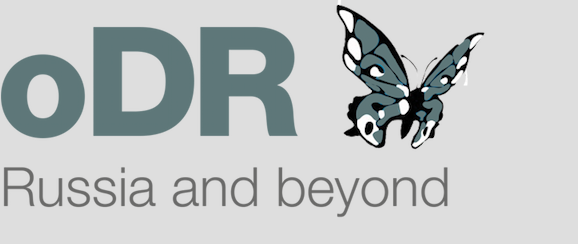 After fleeing Chechnya, four gay men spoke to Dmitry Okrest about bribery, secret meetings and their plans to return home when the country’s brutal anti-LGBT campaign comes to an end.
After fleeing Chechnya, four gay men spoke to Dmitry Okrest about bribery, secret meetings and their plans to return home when the country’s brutal anti-LGBT campaign comes to an end.
This week, five people were detained in Moscow for trying to deliver a petition signed by two million people regarding the persecution of gay men in Chechnya. Evidence from Chechen men about secret prisons, torture and murders in the North Caucasus has sent shock waves through international and domestic public opinion. The Parliamentary Assembly of the Council of Europe (PACE) has passed a strong resolution on a Report on ‘Human Rights in the North Caucasus’ and, earlier this month, President Vladimir Putin supported Ombudsperson Tatiana Moskalkova’s proposal to create a special task force to examine Chechen gay men’s complaints that their rights have been violated.
I spoke to several gay men who have now fled Chechnya about bribery, secret meetings and their plans to return home.
Arrests, beatings, flight
In February this year, Aydamir (all names have been changed) was detained during an ID check at one of the many police roadblocks on the outskirts of Grozny, Chechnya’s capital. ‘They looked at my ID, and threw me head first onto the floor of the van. Nothing was explained, but I immediately realised what was happening. I’d had warnings about round-ups from friends’, he tells me.
We’re chatting in a darkened room in a safehouse, one of several where gay men recently arrived from Chechnya are living temporarily. There are thick blinds on the windows, and they are never opened. On my way here I was asked to switch off my phone, to avoid its signal giving away the location of the flat. The men try not to go out unless it’s strictly necessary; they smoke indoors and have stocked up on food for the week ahead.
The men refuse to have their faces photographed, just their backs. The LGBT activists who are helping them have set up an informal ‘Rescue Committee’, but try to keep their personal involvement under wraps.
April 2017: video from anti-LGBT demonstration in the North Caucasus (YouTube)
Any surprise at these security measures disappears when you hear the men’s stories. Aydamir spent his journey from the roadblock to the police station motionless on the floor of the van. Once there, he was met by officers dressed in yellow-brown uniforms without insignia.
‘During my interrogation they went through all my phone numbers and compared them to their lists. They demanded I give them my place of work and its phone numbers. When I didn’t answer, they beat me. They kept showing me photos off my phone and other arrestees’ phones for me to identify’, Aydamir says. After an hour and a half, most of the interrogators were called out to an emergency, and he was left alone with one cop.
‘I was stood there, naked and bleeding. They had beaten me on the legs. Suddenly the cop said “get dressed”, shoved all my stuff into a pocket and escorted me out of the police station by a back door. “Get yourself out of Chechnya and don’t go near any border posts”, he said by way of a farewell.’ Aydamir thinks he was let go because he didn’t give them any important information and they hadn’t had time to charge him with anything.
Aydamir waited for any fuss over his disappearance to die down before he and a close friend left Chechnya by a roundabout route to Daghestan. He believes he was arrested because of his openness — unlike most gay men from the North Caucasus, he didn’t hide his real name from his friends and was easy to identify.
‘Pain is the easiest thing to bear. They broke my ribs — no big deal; they beat me on the legs — no big deal. The worst was the psychological humiliation’
Zaza left Chechnya at roughly the same time as Aydamir. He tells me that he was detained in February after being grassed up by an acquaintance who had been questioned earlier. He too was thrown onto the floor of a police van and driven to a military base not far from the centre of Grozny.
‘Pain is the easiest thing to bear’, he tells me. ‘They broke my ribs — no big deal; they beat me on the legs — no big deal. The worst was the psychological humiliation. Soldiers ran into the room and shouted: “Haha, you fags, come over here”. We Chechens are a proud people — you can’t insult someone for no reason. But here you just have to sit and listen to verbal abuse. They beat us up badly at first, then they stopped, but they didn’t feed us for days on end.’
During Zaza’s daily interrogations, he was shown photos of men suspected of being gay and asked to reveal their names and other details. He wasn’t, however, asked for money, as had happened before. He had no idea whether he was being questioned by officers or ordinary soldiers, as their uniforms carried no insignia (a common practice in the North Caucasus republics — officers don’t want to be identified because of threats from insurgents).
According to Zaza, he and the seven other gay men he saw were held for ten days in single person cells: ‘I didn’t have any contact with those who were in prison — I was afraid one of them might have been an informer. My cell was small, just a couple of square metres, and I only saw the others through a small unbarred window when they were being taken to the toilet or for questioning.’
‘The fact that you have a wife and even children means nothing. Lots of us live like this: if you don’t get married young, it raises too many questions and suspicions in your family’
Zaza thinks he was released because the military didn’t have any evidence against him: ‘When they checked my phone, they couldn’t find anything incriminating, which is the usual way they nail you. But I’d managed to change my phone the day before I was arrested. So when they interrogated me about my orientation, I asked them, “Where’s the proof?” They didn’t have any, so they would just beat me — they wanted me to confess and then use me to find other people. They gave me, for example, the names of individual gay men and asked me where they were. I knew them of course, but said that I just knew them as ordinary people, and added that I hadn’t seen them for six months or so.’
Despite the beatings, Zaza found the strength to stay silent. Fortunately, his captors couldn’t find anyone who would out him as gay. After they released him, he changed his phone again and went to live in another part of Grozny with his wife, who is unaware of his sexual orientation.
He tells me that this situation is typical of a lot of gay men, who are forced into marriage as early as possible in Chechnya’s patriarchal society. ‘The fact that you have a wife and even children means nothing. Lots of us live like this: if you don’t get married young, it raises too many questions and suspicions in your family’, he tells me.
Easy prey
After some time Zaza decided it would be safer to leave Chechnya. The last straw was a phone conversation with an old neighbour, who told him that some men wearing military uniform had called at his former home. He explains why he didn’t leave immediately: ‘There was constant harassment, but there hadn’t yet been an order for mass arrests. Back in the day, they just wanted money from you – gays are easy prey for blackmailers. People like traffic police would just use you for a bit of extra income — they generally demanded at least ₽100,000 [$1,745].’
Mirza, a student from Grozny, tells me matter-of-factly that this is the standard rate. ‘My friend was arrested after a tipoff: they took his phone and found intimate photos and some correspondence on it. They tortured him for days, asking who hung out with whom. They also filmed him and said they would shame him — they usually tell your parents that you’re a fag. When they catch you, they always make a video and use it for blackmail, saying they’ll put it on social media. In the end, he had to pay ₽150,000 [$2,620] to get rid of them.’
In March, says Mirza, another friend was tortured with electric shocks and so badly, beaten with whatever the interrogators had to hand, that his arms were black and blue for weeks afterwards. The police had got hold of his smartphone, and were determined to find out who he hung out with.
All the gay men I spoke to, with the exception of Suleyman, are planning to sit out the wave of persecution in Moscow and return in a couple of years
At the same time, two other friends of Mirza’s stopped seeing each other after the spate of arrests, and in the end he decided not to return to his family home in Chechnya for a year or two and escaped to somewhere in Central Russia. ‘I just exchange a few words with my other mates now and then: “You okay, Aslan?” “Yep, and you?” I don’t go into any more detail — I don’t know who’s on the other end, and he doesn’t know who’s answering him.’ Several other gay men who have left Chechnya confirm this need for secrecy: they won’t talk to me on tape until they are somewhere really safe. Everyone I have spoken to has said that they have never told their families about their run-ins with the police. If they couldn’t keep it secret, they would say that they had been suspected of links to Wahhabis or their sympathisers.
Another student, Suleyman, also tells me he has been blackmailed. He realised he was attracted to men only recently, not long before the start of the arrests, so his social circle contains just five other men.
Last October, Suleyman met another man in Grozny and soon headed out of town with him. ‘Suddenly the guy turned into the forest, where three people in black military uniforms were waiting. When they started kicking me, they recorded it on their mobiles, yelling, “faggot”, “poof” and other terms of abuse, all in Russian.’ Despite a broken jaw and the loss of his phone, Suleyman decided not to ask for any more trouble and promised to pay them ₽200,000 in the course of a month.
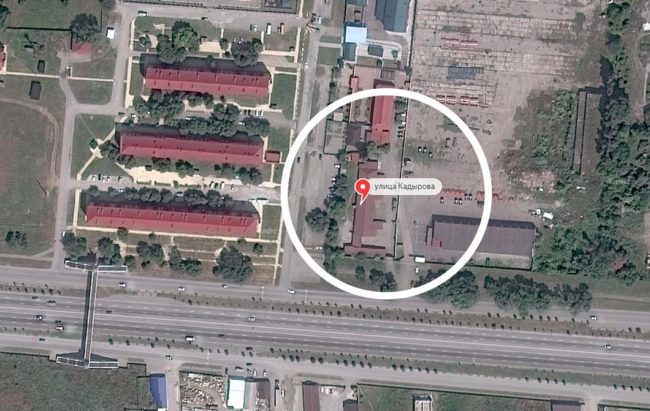
As Suleyman tells me, the more you earn, the more you pay. Someone he knows was released from a secret prison in a former police station in Argun, a town near Grozny, after he agreed to pay ₽1.2 million [$21,000]. ‘There have been rumours about Argun for a long time, about drug addicts being held there, but he was one of the first gays’, says Suleyman. He no longer has any contact with other gay men he knows, especially after the mother of one of them, not knowing about their intimate relationship, told him that her son had suddenly disappeared.
All the gay men I spoke to, with the exception of Suleyman, are planning to sit out the wave of persecution in Moscow and return in a couple of years, provided that their families haven’t found anything out about their orientation.
Safety rules
All the gay men I have spoken to tell me that the local slang they use for each other is ‘a person in the know’ (chelovek v teme). These men have their own groups on social media: ‘Aul’ (literally, ‘village’), for example, has over 16,000 members from all over the Caucasus.
‘Recently rumours about set-ups have been spreading through these groups, as well as warnings, such as, “Brothers, be careful: don’t meet up with anyone in Grozny”’, says Suleyman. But people, he says, are still meeting through the internet, through fake sites. According to Zaza and Aydamir, most gay Chechen men have three or four aliases: ‘People could know each other for years and not know each others’ real names’, Aydamir tells me. ‘This was an absolutely normal situation for everyone.’
These underground networks remind me of how Russian ultra-nationalists, on the one hand, and anti-fascists on the other, used to behave in the 2000s, when intense street fighting and a series of high profile murders led both movements to take maximum safety precautions. Zaza lists the ground rules: an extended correspondence over several months; confirmation of identity by mutual acquaintances and an exchange of photos.
‘Sometimes you ask someone you want to meet to walk past some building while you just sit there, and you always arrange meetings on neutral ground’, he tells me. Another means of communication is a Zello walkie-talkie, which the striking long distance truckers also use.
But despite such precautions, many Caucasian gay men also sync their appearance to aid mutual recognition — they shave their moustaches, for example, but leave a short beard. This, however, is frowned upon, as is the combination of no moustache and a long beard (too similar to the Wahhabis’ look). The ‘normal’ style, i.e. the one that doesn’t arouse suspicion, is a medium length beard.
Officially ‘they don’t exist’
After some initial media coverage of the special ‘gay’ prisons and kangaroo courts, the Chechen authorities continued to ignore the issue for some time and refused to comment on it. One Chechen government minister nonetheless told me that the republic’s government had supposedly looked into the facts about the unofficial persecution of gay men.
‘The rumours have been checked out and, as far as we can say, there have been no confirmed cases of families trying to deal with a sodomite issue unofficially’, he said. However, when I asked him whether there could be any gay Chechen men, he answered that, ‘There may be individuals who claim to be Chechens, and can string a few Chechen words together, but if they are Chechens, let them name themselves and list their twelve ancestors.’ In the same interview, the minister produced a conspiratorial scenario about who might gain from spreading information about gay rights in Chechnya, but wouldn’t name any actual names.
‘I don’t know why it’s suddenly become flavour of the month, but all we hear from journalists these days are slanders about our people’
Another highly placed figure involved in civil society matters insisted that stories about gay persecution in Chechnya were complete fictions. ‘There’s nothing going on, they’re making a song and dance about nothing at all. And you can’t talk about, or discuss something that isn’t there. You can’t listen to all the gossip. I don’t know why it’s suddenly become flavour of the month, but all we hear from journalists these days are slanders about our people’, he concluded in a tone of one delivering an ultimatum.
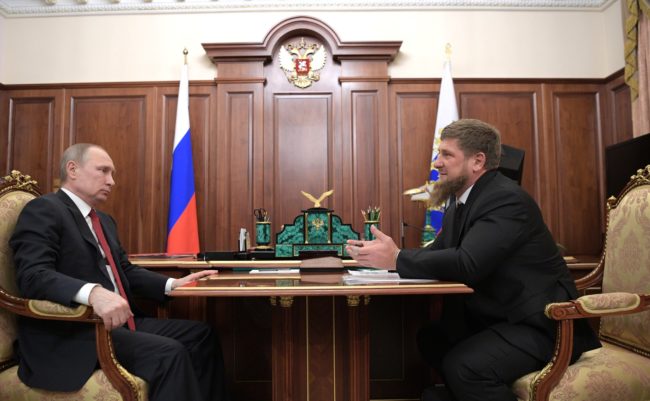
These statements anticipated the declaration made by Ramzan Kadyrov one week after I spoke to them, that ‘you journalists should be demanding that those corrupt devils get down on their knees and ask the Chechen people’s forgiveness for insulting, humiliating and denouncing them. They invented, asserted and spread the whole thing themselves.’
The statistics can only get worse
According to the Russian LGBT Network’s annual report ‘Discrimination Monitoring based on Sexual Orientation and Gender Identity in 2016’ (of which oDR has a copy), only 10% of Russia’s LGBT community has any trust in the police.
Over 3,700 people from most of Russia’s regions, including North Caucasus republics, took part in the network’s online survey. It reveals that relations with the police are becoming an increasingly important issue for the community: 117 respondents, for example, reported cases of unlawful arrest.
The report’s authors note that residents of big cities are less subject to discrimination, as these cities’ weak social connections ‘allow people’s sexual orientation to be indiscernible’. Problems with the police are exacerbated by a 2012 Act ‘On the protection of children from harmful information’ (the so-called ‘gay propaganda’ law), and since 2013 the Administrative Offence Code has been extended to include a ban on ‘propaganda of untraditional sexual relations among minors’. Despite all this, almost half of the respondents to LGBT Network surveys in 2015 and 2016 have been under the age of 18.
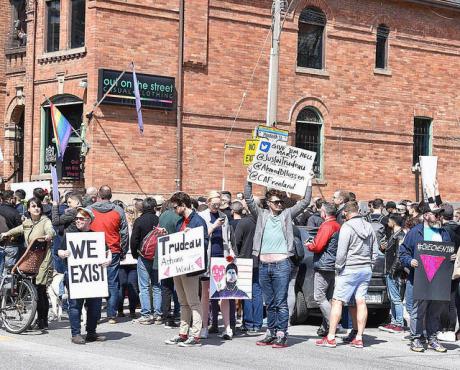
In May 2016, the network revealed that aggression towards members of sexual minorities was on the rise. Its researchers wrote that the new laws against ‘gay propaganda’ were encouraging this increase in the number of crimes committed against the LGBT community. In particular, the number of attacks on males who had met on social media and dating apps — the most common route for identifying gay men to one another — had risen sharply. And it is not just Chechen police officers who use these to entrap their prey, but also ultra-nationalists from the ‘Occupation-paedophilia’ movement recently prohibited by the Russian government. And while the report reveals that while gay men face physical abuse more often, lesbians are more frequent victims of social, legal and sexual abuse.
A majority of respondents also reported psychological abuse (threats, blackmail), and 500 people had suffered physical abuse. The researchers identified hundreds of cases of LGBT people being refused services and property ownership on the basis of their sexual orientation, as well as having their personal details used illegally — for the organisation of cyberbullying, for example.
Judging by all this, including the combination of Russia’s traditional homophobia and the present conservative rhetoric, the situation of LGBT people is unlikely to improve in either the Caucasus or the rest of Russia.
The article is a partner post written by Dmitry Okrest that first appeared on the website Open Democracy Russia.
[Read also: Chechens alienated amidst gay persecutions]


